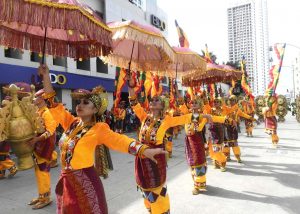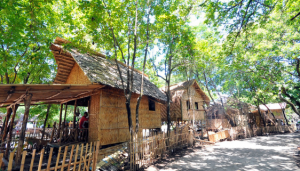An advocacy group is challenging the “outfit of the day” (OOTD) concept common to millennials through the fashion revolution, which calls for changes on the industry’s impact on the people and the environment.
Jesse Boga Madriaga of the Global Shapers Community-Davao hub explained that Fashion Revolution is a global campaign on human rights and environment.
“Many research studies describe fashion as the second largest polluter in the world, next to oil. Around 2,700 liters of water are used to create a single T-shirt. This is how much one person drinks for a span of three years. Fashion is also wasteful, especially that clippings of cloth are wasted almost all of the time,” Madriaga said.
The campaign is still in its infancy in the city and, according to Madriaga, they still have a long way to go.
“We need to put a lot of effort when it comes to changing behavior because the kind of lifestyle promoted right now by various media is we need to buy more, we need to change clothes more, and we can’t repeat the same outfit because it is dreadful,” he said.
“We also see a lot of bloggers promoting what they call the fashion haul where they just buy a lot of clothes not thinking whether they are really going to be able wear it,” he added.
Madriaga also said that mindful consumption goes beyond buying sustainable brands as it involves finding ways to put more value on one’s clothes.
“We have a long way to go when it comes to consuming fashion mindfully but a growing number of people who are knowledgeable on sustainability understand that nothing is wrong with repeating outfits, swapping, getting creative with how you repair them,” he said.
The group also has initial contact with local and national policy makers who champion environment protection and women empowerment to further promote their advocacy.
Locally, the group linked with Councilor Maria Belen Acosta and Councilor Avegayle Ortiz-Omalza.
“If our leaders have environmental agenda on their table then we can explore that further and include fashion as a part of it,” Madriaga said.
The Fashion Revolution also calls for the consciousness of the social aspect of sustainability.
“(Do we know) who made our clothes? Are they getting paid well? Do they get enough benefits?” he asked.



